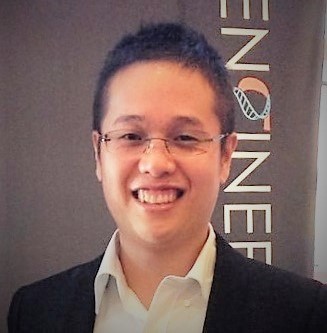Jianbo Tang Received an NIH K99/R00 Pathway to Independence Award
Con gratulations to Jianbo Tang for receiving a highly competitive NIH K99/R00 Pathway to Independence Award. The title of his project is “Dual-modal ultrasound velocimetry andphotoacoustic oximetry of entire rodent brain for Alzheimer’s Disease study.” During the first phase of this 5 year project, he will be working with Professors David Boas, Anna Devor, Thomas Szabo, and Ben Wolozin as he prepares to take the project to the second independent phase in his own laboratory.
gratulations to Jianbo Tang for receiving a highly competitive NIH K99/R00 Pathway to Independence Award. The title of his project is “Dual-modal ultrasound velocimetry andphotoacoustic oximetry of entire rodent brain for Alzheimer’s Disease study.” During the first phase of this 5 year project, he will be working with Professors David Boas, Anna Devor, Thomas Szabo, and Ben Wolozin as he prepares to take the project to the second independent phase in his own laboratory.
Jianbo Tang received his PhD in Biomedical Engineering from University of Florida in 2016. Currently, he is a postdoctoral research fellow working with Dr. David Boas in the Department of Biomedical Engineering at BU. His research focuses on developing novel functional imaging technologies for biomedical applications, with particular interest in photoacoustic imaging, functional ultrasound imaging, and optical coherence tomography.
Jianbo’s publications are listed in his Google Scholar list of publications.
Project Summary/Abstract
Progression of Alzheimer’s Disease (AD) appears to initially take place in the hippocampus where memory is formed. In vivo imaging of cerebral blood flow (CBF), oxygen saturation (sO2), and cerebral metabolic rate of oxygen (CMRO2) not just in the cortical but also in the subcortical regions is thus of critical importance to study vascular dysfunction during AD progression. Currently available imaging methods are limited either by shallow penetration which only allows imaging superficial cortical layers (eg. optical imaging) or by low spatiotemporal resolution (eg. MRI and CT). The ability to bring together the functional and structural information from a large field-of-view, at a high spatiotemporal resolution would allow many new hypotheses to be explored.
The goal of this K99/R00 proposal is to develop a novel ultrasound velocimetry and integrate it with photoacoustic oximetry for CBF, sO2, and CMRO2 imaging of the entire rodent brain with ~100 micron-sub second spatiotemporal resolution. Specifically, in Aim 1, the candidate will develop an ultrasound speckle decorrelation-based velocimetry (vUS) for quantitative CBF imaging; in Aim 2, the candidate will implement a multispectral photoacoustic tomography (mPAT) for sO2 and integrate the vUS and mPAT to measure CMRO2. The proposed K99/R00 program will focus on applying the technology to investigate Aim 3: Alzheimer’s disease (AD) in a triple transgenic AD mouse model. The outcome of Aim 3 will allow us to understand the different time courses of hemodynamics and oxygenation changes over the progression of AD in both cortical and subcortical regions and the relationship with amyloid and tau deposition.
The proposed research will be conducted at the BOAS lab/Neurophotonics Center at Boston University, which is an ideal environment for developing biomedical imaging technology and applying it to neuroscience research. A strong mentoring team has been formed by the candidate which includes Dr. David Boas, a pioneer in applying optic imaging for neuroscience study, Dr. Thomas Szabo, an expert in ultrasound technology, Dr. Anna Devor, who has extensive experience in neurovascular coupling and neural imaging, and Dr. Benjamin Wolozin who is an expert in the field of neurodegenerative mechanism and treatment. Through this proposed K99/R00 research and professional development program, the candidate will receive didactic training in AD related neurodegeneration and brain imaging technology development, and also strengthen skills in planning, communication, interviewing, grant writing and laboratory management. By fulfilling the aims, the candidate will be well equipped to become an independent investigator and lead an inter-disciplinary research program.